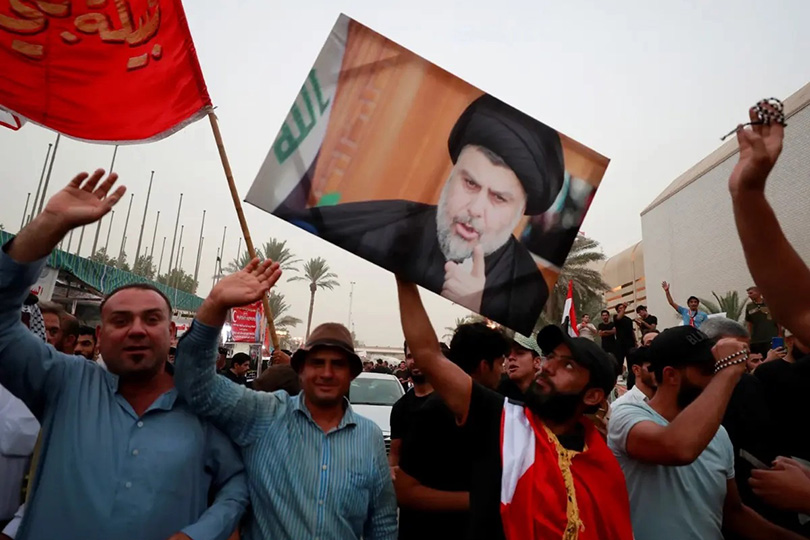After the collective resignation of the Sadrist Movement's parliamentary deputies following the disputes that disrupted the government formation process and the inability of the Sadrist Movement and its tripartite alliance to form the government, Al-Sadr quickly withdrew from parliament. He then boycotted the 2024 provincial council elections and announced his non-participation in them. At the same time, he worked to strengthen himself internally by rapidly reorganizing the Sadrist interior and changing its name to the "National Shiite Movement," which signifies the first step toward ending the political boycott. On February 11, Al-Sadr called on his followers to conduct an internal evaluation regarding participation in the upcoming elections or continuing the boycott, marking the initial signal for his return to electoral and political participation in general.
The absence of the Sadrist Movement greatly contributed to unifying the Shiite political forces and creating a more favorable environment to strengthen their political standing, quietly advancing towards the formation of local governments, and prior to that, the national government, which was eventually formed after a difficult process. After the formation of Mr. Al-Sudani’s government, Al-Sadr sensed the danger of remaining distant from the political and governmental scene, prompting him to reconsider his boycott of the political process and the upcoming parliamentary elections scheduled for November 11 this year.
As expected, the Sadrist Movement will begin its field mobilization by supporting demonstrations and protests, especially those anticipated before the elections, under the pretext of poor services, electricity shortages, and dissatisfaction with Al-Sudani’s government. Alternatively, Al-Sadr may use the Friday sermons platform to mobilize his supporters and encourage their participation in the elections. This is preceded by meetings with Sadrist leaders from the Ahrar Bloc, Saeron, and the Sadrist Movement itself, representing his actual return to political life and participation in the forthcoming elections.
Despite signs of his return to the political and parliamentary arena, Al-Sadr insists that the boycott will continue. An analytical reading suggests that such movements by Al-Sadr aim to reorganize his base and guide them towards political and electoral participation. Within this context, mechanisms will determine his electoral performance, including the electoral law that governs the relationship between the political entity and its supporters.
The previous "Saint-Laguë" electoral system reduces the likelihood of Al-Sadr achieving the 73 seats he won in the 2021 elections. According to the amended formula set to replace the old system, Al-Sadr is expected to lose seats in several provinces, meaning he will not reach the same number of seats as in 2021. Given the unlikelihood of changing the electoral law, the Sadrist Movement must base its decision to return to political work on calculations within the framework of the new electoral system.
The Sadrist Movement will closely monitor evolving factors before making its final decision on election participation. If Al-Sadr decides to participate in the 2025 elections, it will represent a significant development in Iraqi politics and may signal a new phase in Iraqi elections. This will have regional and local repercussions. The 2025 elections will not merely be an electoral race but a critical threshold for the political future of the Shiite community, the inclusivity of the system, and the legitimacy of current political representation.






Comments